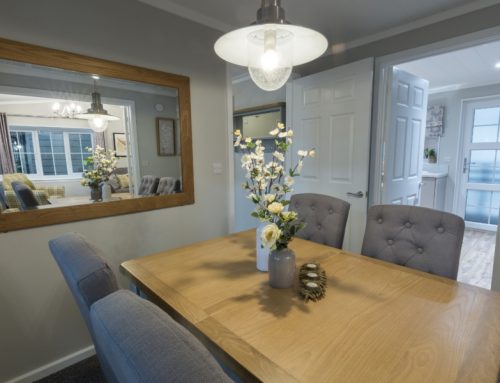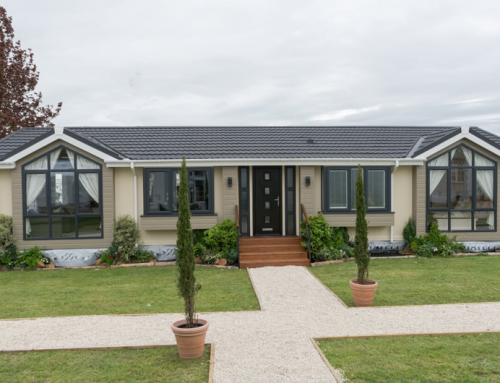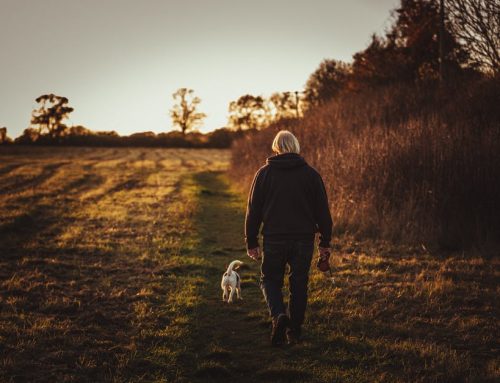The current British Standard for residential park homes ensures all homes are built to be extremely energy efficient. However, as with any detached property all sides are exposed to the elements, therefore maintaining warmth during the colder months is vital.
With careful planning, you can maximise the efficiency of your park home, whether you’re staying in your Shropshire park home for the duration of winter, or leaving it to enjoy sunnier a climate. If you are fortunate enough to be considering or completing a Presthorpe Grange Residential Park home purchase in 2018, follow these steps to help your brand new park home maximise its efficiency potential.
If you are staying in your residential park home:
Underfloor heating can work wonders for energy efficiency and general comfort. Advanced systems will even work on a timer system or can be programmed using a smartphone or device and can be adjusted according to your heating needs. Alternatively, portable heating is an affordable, flexible option that can heat individual rooms whilst others that are not in use are closed off to avoid warmth being wasted unnecessarily.
External cladding requires more of a financial investment initially, but the insulation will keep your park home thoroughly protected from the elements. The money you save in reduced energy costs will certainly make the cladding more affordable in the long run.
Additionally, clearing external gutters and trimming back any nearby or overhanging foliage will ensure that you minimise the opportunity of moisture getting inside your park home and causing any damage.
Internally insulate your park home by:
- Insulating your hot water tank and lagging any exposed piping;
- Lining all curtains to give an extra layer of protection against draughts;
- Using draught excluders across the bottom of doors:
- Sealing gaps around door and window frames, and between the floors and skirting boards;
- Closing unused fireplace flues;
- Lining radiators with aluminium foil to reflect heat;
- Moving any barriers e.g. furniture away from radiators to prevent their heat from being absorbed.

If you are leaving your residential park home:
Ensure all equipment is fully drained down by opening drain plugs, turning on the taps and shower, flushing the toilet and removing residual water from all equipment and appliances. Combi boilers should be drained as per the manufacturer’s recommendations. Sealed central heating systems containing antifreeze do not need to be drained but you should check antifreeze levels annually.
Always turn the water off at the stopcock as residual water can easily freeze, causing pipes to burst, water to escape and damage to your boiler.
Consider washing and polishing the exterior to minimise cleaning upon your return.
Internally prepare your park home for winter by:
- Unplugging all electrical devices including larger white goods;
- Removing any perishable food stuffs which might attract vermin;
- Removing bedding, clothing and soft furnishings completely, or storing them somewhere air can circulate to avoid them becoming damp or mouldy;
- Propping open internal doors and cupboards and pulling out drawers to allow air to circulate;
- Removing any valuable items and leaving curtains open so that any opportunists can see your park home is empty;
- Emptying, cleaning and switching off fridges or freezers, and leaving the doors open to prevent odours.
If your park remains in use in winter months, leaving your central heating system set at the manufacturer’s recommended temperature should avoid frost damage.Carrying out simple precautions such as these also ensures any relevant insurance cover remains valid throughout the winter months.
Informing fellow park residents of your plans for winter could provide an extra layer of reassurance and you can offer reciprocal support to others throughout the season too. Perhaps ask a neighbour to check your home occasionally if you are leaving or offer to help winter proof another park home for a fellow owner.
Making the most of the great community and advice to be had on your doorstep is one of the best and easiest ways to learn about the park home lifestyle and how that changes throughout the seasons.
However you choose to spend your winter months, preparing your Warwickshire park home for winter sooner rather than later will benefit you, and it, immensely.
If you have any additional questions about maximising your park homes energy efficiency over the colder months don’t hesitate to get it touch.






Leave A Comment